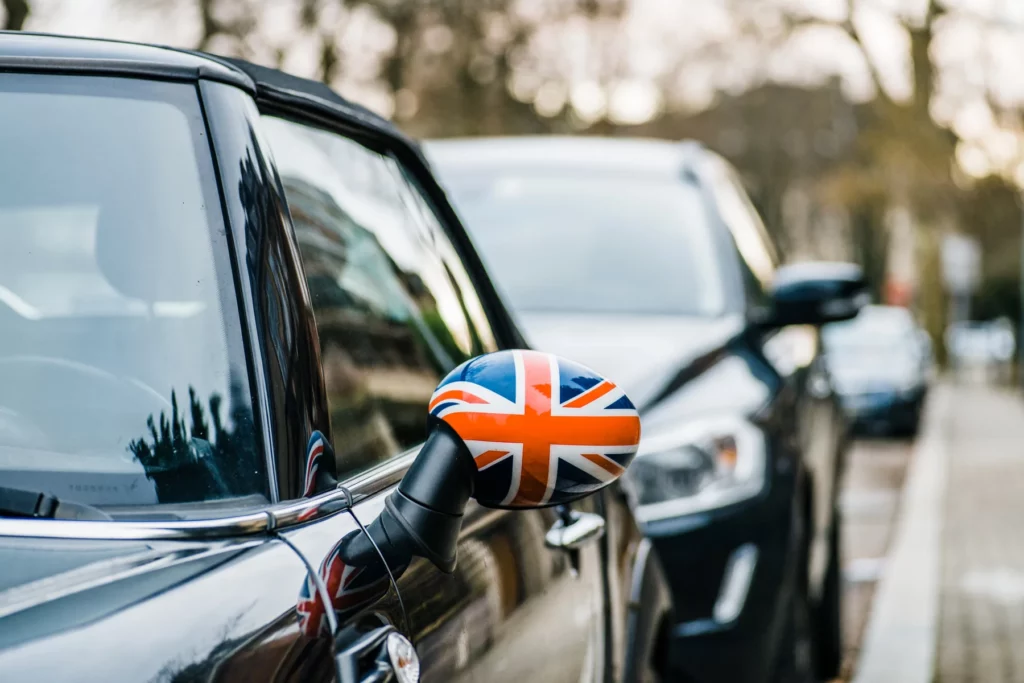The excitement of owning your very own car, ready to hit the roads and explore new horizons? But here’s a twist to the tale – what if you don’t have a driver’s license yet? Can you still buy a car in the UK?
In the UK, you can legally buy a car without a driver’s license. There’s no legal requirement that states you must have a driver’s license to purchase a vehicle. However, there are some important points to consider.
Here, you will learn about the key factors to keep in mind and what to look for when purchasing a car in the UK.
What to consider before buying a car without a license?
Ownership and Use: Although it’s possible to purchase a car without a license, it’s important to note that you won’t be permitted to drive it legally on public roads until you’ve obtained a valid driver’s license.
Consequently, if the need arises to move the car, you’ll have to arrange for someone possessing a valid license to handle its transportation.
Insurance: If your intention is to insure the car, it’s worth considering that the majority of insurance companies will demand details about the primary driver, who must possess an accurate license.
Also, If you are thinking about getting auto insurance in your name and having someone else drive it, you really need to be very careful. This kind of behavior may be reported as “fronting,” which is prohibited and might result in complicated insurance-related situations.
Test Drives: It’s worth mentioning that some dealerships may mandate the possession of a valid license for those wanting to test drive a car. This stipulation is grounded in safety concerns and ensures that potential drivers are sufficiently skilled to operate the vehicle.
Registration and Documentation: Further, During the car purchasing process, it’s crucial to understand that you’ll need to provide identification and proof of address, irrespective of your possession of a license.
Notably, the exact requirements for documentation might fluctuate contingent on the seller and the specific dealership.
Legal Age: A pivotal aspect to remember is that meeting the legal age requirement is pivotal in the UK. Moreover, To apply for a provisional driving license, you must be at least 17 years old.
It’s required to keep in mind that in the UK, reaching the legal age criteria is vital. For those falling below this age threshold, the prospect of taking your newly acquired car for a spin will have to wait until they reach the eligible age.
Finances: Lastly, Owning a car comes with expenses beyond the purchase price, including insurance, taxes, maintenance, and fuel. Make sure you’re financially prepared for these ongoing costs.
What to look for when purchasing a vehicle in the UK?

Budget: Begin by determining your budget range, which should encompass not only the vehicle’s cost but also factors like insurance, taxes, and potential maintenance expenses.
Vehicle Type and Purpose: Afterward, choose the vehicle type that suits your needs—whether it’s a sedan, SUV, hatchback, or something else. Additionally, consider how you intend to use it, whether it’s for daily commuting, long trips, or off-road adventures.
Research: Furthermore, Embark on thorough research into various makes and models. Take into mind factors like fuel efficiency, reliability, safety features, and reviews to make an informed decision.
MOT and Service History: Carefully inspect the MOT history to gauge its roadworthiness and identify any issues that were highlighted in previous tests. Also, delve into the service background to gain insights into the car’s maintenance.
Mileage: Evaluate the vehicle’s mileage, bearing in mind that lower range is typically preferred. However, don’t forget to consider the car’s age and how its interval aligns with the average annual usage.
Ownership History: another key point Request the vehicle’s logbook (V5C) to authenticate ownership details. Keep an eye out for potential red flags, including multiple owners within a short span.
Vehicle Identification Number (VIN) Check: Obtain the VIN and carry out a thorough history. This process will unveil concealed issues like previous accidents or outstanding finance.
Test Drive: Prioritize taking the car for a test drive. During this experience, evaluate its handling, comfort, braking, and listen for any unusual noises.
Visual Inspection: Conduct a meticulous visual examination of both the exterior and interior. Look for signs of damage, rust, mismatched paint, or irregular panel gaps.
Electronics and Features: Put all electronic systems to the test, including lights, air conditioning, infotainment, and power windows.
Tires and Suspension: Scrutinize tire condition, tread depth, and suspension components for any indications of wear.
Fluid Levels: In addition, Inspect the levels and conditions of various fluids, including oil, coolant, and brake fluid. Dirty or low fluids might indicate inadequate maintenance.
Engine and Transmission: Listen attentively for any uncommon noises emanating from the engine. Additionally, ensure that gear changes are smooth if the vehicle boasts an automatic or manual transmission.
Brakes: Put the brakes through their paces, checking for responsiveness, pulling, or any grinding noises.
Paperwork: Verify that all essential paperwork is in order. This includes the V5C, MOT certificates, service records, and any supplemental warranties or guarantees.
Insurance Costs: Estimate the prospective insurance costs based on the specific make and model you’re considering. Be aware that some cars may attract higher insurance premiums due to factors such as engine size and theft rates.
Ownership Costs: Dig into the potential ongoing expenses, encompassing factors like fuel economy, road tax, and maintenance costs.
Negotiation: Don’t shy away from negotiating the price, leveraging insights from your research and any identified issues during the inspection.
Legal Compliance: Lastly, Prioritize transactions that are legally compliant and transparent. Be cautious when dealing with sellers who seem hesitant to furnish the necessary information.
Why Buy a Car Without a License?
Acquiring a Car as a Gift: First, When contemplating the act of bestowing a car as a gift upon a friend or family member, you might encounter the situation of procuring a vehicle without possessing a driver’s license.
Car Collecting: For individuals who are enthusiastic collectors of automobiles but consciously refrain from operating them, the requirement for a valid driver’s license to incorporate a new addition into their collection might not be applicable. Besides, for car transportation from showroom to your garage, you can get a help from a car transport service wirth budget range.
Acquiring a Corporate Vehicle: Moreover, Business proprietors with intentions of acquiring a vehicle for corporate purposes might opt to delegate driving responsibilities to licensed employees, thereby potentially bypassing the personal requirement for a driver’s license.
Obtaining a Car with a Learner’s Permit: In the scenario where you currently possess a learner’s permit and are awaiting an upcoming license examination, the choice to procure a vehicle without an active license could serve as a prudent move. In addition, this action would ensure your preparedness to take control of the vehicle upon successfully completing your examination.
Procuring a Vehicle for a Caregiver or Personal Chauffeur: In the end, In instances where you or a family member employs a caregiver or personal chauffeur, the act of acquiring a vehicle designated for their usage while they undertake driving duties becomes relevant.
Besides, Even in the absence of your own driver’s license, this transaction can be conducted, contingent upon designating another individual with a valid license as the primary driver.
How to Purchase a Vehicle Without a License?

Determine the Vehicle Operator: Prioritize identifying who will be responsible for driving the vehicle. As a non-license holder, remember that you won’t be able to test drive or operate the car legally. Therefore, establish beforehand who will take on the driving responsibilities.
Apply for Auto Financing: If you plan on securing a loan to finance the vehicle, explore a variety of lenders to compare options and secure a favorable deal. Many lenders enable you to obtain preapproval and assess personalized interest rates through a soft credit check, which won’t impact your credit score.
Besides, Keep in mind that loan approval generally hinges on factors like good credit, a creditworthy co-signer, verifiable income, and a manageable debt-to-income ratio.
Obtain Car Insurance: Furthermore, When buying from a dealership, you’ll need to furnish proof of car insurance during the purchasing process. This requirement also extends to the vehicle’s registration.
MAke sure that you provide the driver’s license details of the designated vehicle operator to the insurance agent. Opt for someone with a commendable driving record to minimize insurance expenses.
Finalize the Purchase: With your financing and insurance arrangements settled, it’s time to proceed with the purchase. If you’re working with a dealership, communicate your intent to buy the vehicle without a license in advance.
Additionally, ensure you have a licensed friend or relative accompanying you to drive the car off the premises.
Register the Vehicle: Dealerships typically handle the submission of registration and title documents to the DMV when you purchase a vehicle from them.
Conversely, if you’re acquiring the car from a private seller, you’ll need to visit your local DMV to fulfill the requisite paperwork. Don’t forget to bring a photo ID along with proof of insurance during this step.
Where to find vehicles for sale in the UK
Numerous online platforms offer a wealth of options for discovering vehicles available for sale within the UK. https://www.autotrader.co.uk/?refresh=true, https://www.gumtree.com/ or eBay Along with the Marketplace on Facebook.
When seeking cars in person, remain vigilant for advertisements affixed to individuals’ vehicles, peruse local newspapers for listings, scan supermarket and newsagent bulletin boards, and make a point to visit nearby used car dealerships.
FAQ
Which car should I buy as a learner driver in the UK
- Ford Fiesta
- Volkswagen Golf
- Mini
- Vauxhall Astra
- Ford KA
What is the purchase process for Buying a car in the UK?
- First, locate a car.
- Get an MOT test if required.
- Look for and buy auto insurance
- Pay for the car and get the owner’s V5C/2.
- Pay your vehicle tax online.
- Drive the car away and watch for the complete V5C to show up for a few weeks
Conclusion:
To sum up, while it is possible to buy a car without a driver’s license in the UK, there are certain important considerations to keep in mind. The purchase process involves diligent research, identifying a designated driver, arranging financing and insurance, and ensuring legal compliance.
On top of remember you won’t be able to legally drive the vehicle on public roads until you obtain a valid driver’s license. Whether you’re purchasing the car as a gift, for collecting purposes, or for business use, understanding the legal and practical aspects of car ownership without a license is crucial.
Last but no least seek guidance from professionals and stay informed about local regulations to make an informed decision that aligns with your circumstances and plans for driving in the future.











